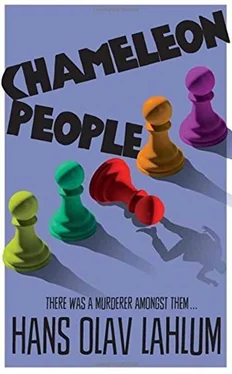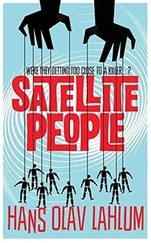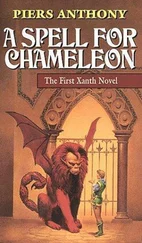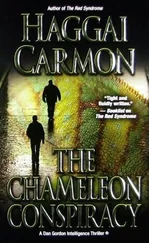It was only once the report was finished that it struck me that Per Johan Fredriksen had been chairman of the Standing Committee on Foreign Affairs. If he had not been stabbed to death the day before yesterday, it would have been his voice that I heard on the radio just now.
The newspapers carried a couple of obituaries and matter-of-fact reports on the death of Per Johan Fredriksen, in between the headlines about the EEC and negotiations with the Soviet Union. They reported that he had been murdered and where he had been murdered, and that a suspect had been arrested fleeing the scene of the crime. Aftenposten had picked up on the fact that he was on a bicycle and that the suspect was young, but they had no further details.
The sparse newspaper coverage suited me very well. But I was fully aware that pressure was mounting. If we did not manage to identify the young suspect in the course of the day, we would have to consider publishing a request for information along with his photograph in tomorrow’s papers. This would not give a good impression and would no doubt lead to speculation and criticism of the police. Following my previous successes, the media and police force had precariously high expectations of me. And I was not at all certain that I could meet them in this investigation – certainly not without Patricia.
I was back at the station by eight o’clock. I met DI Danielsen in the doorway, as, of course, he had come a few minutes earlier in the hope that he would be there before me. His early rise had been to no avail. There were still no enquiries about anyone who could be the suspect. In fact, there had been no enquiries at all about the case, other than a growing number of calls from the press.
At a quarter past eight, I once again sat down opposite the arrestee. I did not expect to make any real progress and was not disappointed.
With a degree of irritation, I repeated my questions as to what he was called and who his parents were. He looked at me with raised eyebrows, but sat in silence.
I then confronted him with the fact that he had been spying on me outside my flat the previous autumn.
This did not appear to surprise him. He hesitated for a moment, then gave a quick but definite nod. A small smile slipped over his lips, but disappeared just as quickly. Once more, he sat there and did not say a word, his face almost devoid of expression when I asked why he had spied on me.
I played my final card and said: ‘When you told me yesterday that your name was Marinus, you were referring to Marinus van der Lubbe, weren’t you? You were trying to tell me that you are being made a scapegoat, just as he was, for a greater crime involving more powerful parties?’
I leaned forwards and tried to catch his eye. There was a sudden brief spark. He nodded – quickly and almost vigorously. Then he sank back into apathy without saying anything.
‘Van der Lubbe was at the scene of the crime, but claimed he had not seen who set fire to the Reichstag building. Did you see Per Johan Fredriksen being murdered on Saturday?’
He did not look at me, but shook his head almost imperceptibly in response.
I interpreted this to mean that he had not seen the murder, or who did it. But it could as easily mean that for some reason or other, he did not want to tell me what he had seen. Whatever the case, it felt more and more pointless to sit here questioning him.
He remained silent when I stood up and walked towards the door. But then, just as I put my hand on the door handle, he unexpectedly piped up: ‘If you don’t find out who the murderer is soon, my fate will be the same as Hauptmann’s.’
Then nothing more. He didn’t move a muscle when I asked who Hauptmann was, what had happened to Hauptmann and what he meant by all these riddles.
I left without getting an answer, and more confused than ever.
‘Well, there is some progress, at least he is saying something, even if it is still not a lot.’
I gave a brief nod to my boss’s first statement, and Danielsen gave a quick nod to the second.
Neither of them knew or remembered anything about any Hauptmann. We had just been informed that the unusually annoying lawyer, Edvard Rønning Junior, had been appointed as the defence, and that he found it ‘highly unsatisfactory’ that the police could not tell him his client’s name. The atmosphere in my boss’s office was somewhat strained, to say the least.
‘This is just a waste of time. The boy is clearly guilty, and the court will just have to decide whether he is too disturbed to go to prison or not. Let’s release his picture in the papers tomorrow if no one gets in touch, and in the meantime, we can get on with more meaningful work,’ Danielsen said, opening his hands in suggestion.
The boss looked at me questioningly. I answered diplomatically that that might well be true and that we should perhaps not use too many resources on the case. I was not opposed to Danielsen taking on more exciting tasks, but would myself prefer to keep working on this one. Until we knew the identity of the suspect, the motive would remain unclear and could well be significant in terms of whether he was of sound mind or not.
It was my turn to look questioningly at my boss. He dithered for a moment or two, before nodding gravely.
‘Let’s do as you both wish. Danielsen can move on to other jobs and Kristiansen, you can continue to work on possible motives in the hope of solving the question of the suspect’s identity. We will not make anything public yet.’
It was not a solution that any of us were entirely happy with, but it was one that we could all live with. Danielsen and I left the office together, but did not exchange a word or look.
I dutifully checked that no new information had come in that might help to identify the suspect. Then I left behind the growing pile of press enquiries to the switchboard and returned to my office. From there I rang Oda Fredriksen and asked if I could come and see her again.
The drawing room in Bygdøy felt even larger when there were only two of us there. Oda Fredriksen and I sat alone at a huge mahogany table full of flowers.
The youngest daughter, Vera, was at home, and her son Johan was on his way. I had said to Oda Fredriksen that it would be best if we could first speak alone about things that she might not want her children to hear. She had pointed to the drawing room without saying a word. I was not entirely sure that she had understood what I meant.
I said that the flowers were beautiful. She flapped her hand with disinterest.
‘I have always liked flowers so much, but I can barely look at them now. It is only a week since his birthday. The drawing room was full of happy people. Now it feels so empty.’
Fredriksen’s widow appeared to be genuinely shocked by the news of her husband’s death, even now, a day and a half later. I felt a surge of sympathy and did not want to add to her burden in any way. So I assured her that I would do my best to solve her husband’s murder.
‘In the meantime, however, I have heard a very strange story about a different death altogether; it’s a very old case, but I am now obliged to investigate whether it might have any significance to our current case.’
I need wonder no longer how much Oda Fredriksen was taking in. She sat up on the sofa and sighed, then spoke.
‘You mean, of course, the tragic case from 1932, and you no doubt heard it from my eldest daughter. She called here yesterday evening to let me know in no uncertain terms that I should have told you myself. And I have to admit that this time she is right. It is just that the story of my sister’s death, even though it was a long time ago now, is still so painful that I quite simply could not face talking about it so soon after my husband had died, and when the children were there.’
Читать дальше












